-
 Bitcoin
Bitcoin $107,461.2530
0.65% -
 Ethereum
Ethereum $2,425.6945
-0.64% -
 Tether USDt
Tether USDt $1.0003
-0.01% -
 XRP
XRP $2.1844
4.49% -
 BNB
BNB $646.3777
0.36% -
 Solana
Solana $146.6972
3.90% -
 USDC
USDC $1.0000
0.00% -
 TRON
TRON $0.2744
1.17% -
 Dogecoin
Dogecoin $0.1631
1.28% -
 Cardano
Cardano $0.5609
1.22% -
 Hyperliquid
Hyperliquid $37.0726
2.08% -
 Bitcoin Cash
Bitcoin Cash $497.3222
-0.12% -
 Sui
Sui $2.7220
3.19% -
 Chainlink
Chainlink $13.1487
0.79% -
 UNUS SED LEO
UNUS SED LEO $9.0787
0.68% -
 Avalanche
Avalanche $17.6542
1.11% -
 Stellar
Stellar $0.2377
1.49% -
 Toncoin
Toncoin $2.8426
0.81% -
 Shiba Inu
Shiba Inu $0.0...01140
1.72% -
 Litecoin
Litecoin $85.2565
0.62% -
 Hedera
Hedera $0.1475
2.69% -
 Monero
Monero $314.1893
2.28% -
 Bitget Token
Bitget Token $4.6752
0.90% -
 Dai
Dai $1.0001
0.02% -
 Polkadot
Polkadot $3.3425
1.28% -
 Ethena USDe
Ethena USDe $1.0001
0.02% -
 Uniswap
Uniswap $6.9500
1.23% -
 Pi
Pi $0.5304
-3.13% -
 Pepe
Pepe $0.0...09311
0.91% -
 Aave
Aave $254.6674
-1.33%
Can SHIB wallet address be tracked? Anonymity analysis
SHIB wallet addresses on the Ethereum blockchain are trackable via explorers like Etherscan, but privacy can be enhanced using VPNs, DEXs, and privacy-focused wallets.
May 14, 2025 at 06:50 am
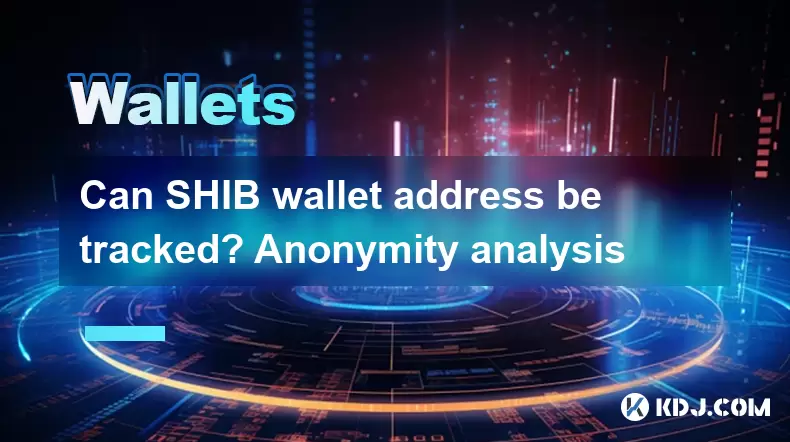
The question of whether a SHIB wallet address can be tracked and the level of anonymity it provides is a crucial concern for many users in the cryptocurrency space. SHIB, or Shiba Inu, is a popular meme token that operates on the Ethereum blockchain. Understanding the traceability of SHIB wallet addresses involves delving into the nature of blockchain technology, the specifics of Ethereum, and the practices of various entities that might track transactions.
Understanding Blockchain and Ethereum
Blockchain technology, the foundation of cryptocurrencies like SHIB, is inherently transparent. Every transaction on the Ethereum blockchain is recorded on a public ledger, which anyone can access. This means that once a transaction is made, it is permanently inscribed on the blockchain, visible to anyone who wants to look at it. The Ethereum blockchain, where SHIB operates, is no exception to this rule.
SHIB Wallet Address Structure
A SHIB wallet address is essentially an Ethereum address, as SHIB is an ERC-20 token. An Ethereum address is a 42-character hexadecimal string that starts with '0x'. This address is used to send and receive SHIB tokens. While the address itself does not reveal any personal information about the owner, it can be linked to other addresses through transaction history, potentially compromising the anonymity of the user.
Tracking SHIB Transactions
Given the public nature of the blockchain, SHIB transactions can be tracked by anyone with access to blockchain explorers like Etherscan. These platforms allow users to input a wallet address and see all the transactions associated with that address, including the amount of SHIB sent or received, the timestamp, and the addresses involved in the transaction. This level of transparency makes it possible for anyone to track the flow of SHIB from one address to another.
Anonymity and Privacy Concerns
The transparency of the blockchain poses significant challenges to maintaining anonymity. While the wallet address itself does not contain personal information, it can be linked to real-world identities through various methods. For instance, if a user ever uses their wallet address to interact with a centralized exchange that requires KYC (Know Your Customer) verification, the exchange can link the wallet address to the user's personal information. Additionally, law enforcement agencies and blockchain analytics firms use sophisticated tools to track and analyze transactions, potentially de-anonymizing users.
Enhancing Anonymity with SHIB
Despite the inherent transparency of the blockchain, there are ways to enhance the anonymity of SHIB transactions. Using privacy-focused wallets and services can help obscure the trail of transactions. For example, using a wallet that supports coin mixing or tumblers can break the direct link between the sending and receiving addresses. Additionally, using decentralized exchanges (DEXs) that do not require KYC can help maintain anonymity, as these platforms do not collect personal information.
Practical Steps to Maintain Anonymity
If you want to maintain a higher level of anonymity with your SHIB transactions, consider the following steps:
- Use a privacy-focused wallet: Wallets like MetaMask, when used with privacy extensions, can enhance your anonymity. Look for wallets that support coin mixing or tumblers.
- Utilize decentralized exchanges: Platforms like Uniswap do not require KYC, which can help keep your transactions anonymous.
- Avoid linking your wallet to personal information: Never use your SHIB wallet address on platforms that require KYC unless absolutely necessary.
- Use VPNs and Tor: When accessing your wallet or making transactions, use a VPN or the Tor network to mask your IP address.
The Role of Blockchain Analytics Firms
Blockchain analytics firms play a significant role in tracking SHIB transactions. Companies like Chainalysis and Elliptic use advanced algorithms to analyze blockchain data and identify patterns that could lead to de-anonymizing users. These firms are often hired by law enforcement agencies, financial institutions, and even cryptocurrency exchanges to monitor and track suspicious activities. Their tools can link multiple addresses to a single entity, making it harder for users to maintain anonymity.
Legal and Regulatory Considerations
The legal and regulatory environment surrounding cryptocurrencies also impacts the anonymity of SHIB transactions. In many jurisdictions, regulations require exchanges and other financial service providers to implement KYC and AML (Anti-Money Laundering) procedures. These regulations can lead to the collection of personal information that could be used to track SHIB transactions. Additionally, law enforcement agencies have the authority to request transaction data from exchanges and blockchain analytics firms, further compromising user anonymity.
Case Studies of SHIB Anonymity Breaches
There have been several instances where the anonymity of SHIB transactions has been compromised. One notable example is the case of a large SHIB transaction that was linked to a known exchange wallet, which was then traced back to an individual's personal information. Such cases highlight the vulnerabilities in maintaining anonymity on the Ethereum blockchain. They also underscore the importance of understanding the risks and taking proactive steps to protect one's privacy.
FAQs
Q: Can I completely anonymize my SHIB transactions?
A: While it is challenging to achieve complete anonymity due to the transparent nature of the blockchain, using privacy-focused tools and practices can significantly enhance your anonymity. However, there is always a risk of being traced by sophisticated blockchain analytics firms or law enforcement agencies.
Q: Are there any legal risks associated with trying to maintain anonymity with SHIB transactions?
A: Yes, attempting to maintain anonymity, especially if it involves using services that are illegal in certain jurisdictions, can lead to legal repercussions. Always ensure that your practices comply with local laws and regulations.
Q: How can I tell if my SHIB wallet address has been compromised?
A: Regularly monitor your wallet address on blockchain explorers like Etherscan to check for any unauthorized transactions. Additionally, be cautious of phishing attempts and never share your private keys or seed phrases with anyone.
Q: Can using multiple SHIB wallets enhance my anonymity?
A: Yes, using multiple wallets can help distribute your transactions across different addresses, making it harder for others to link them to a single identity. However, this should be done in conjunction with other privacy-enhancing practices for maximum effectiveness.
Disclaimer:info@kdj.com
The information provided is not trading advice. kdj.com does not assume any responsibility for any investments made based on the information provided in this article. Cryptocurrencies are highly volatile and it is highly recommended that you invest with caution after thorough research!
If you believe that the content used on this website infringes your copyright, please contact us immediately (info@kdj.com) and we will delete it promptly.
- Undervalued Crypto Gems: Time to Buy Now?
- 2025-06-28 14:30:12
- Stablecoins, Risk Reward, and Regulation: Navigating the Crypto Minefield
- 2025-06-28 14:30:12
- Binance Coin (BNB): Whale Moves, Exchange Activity, and the Path to $900?
- 2025-06-28 14:50:13
- XRP Lawsuit: SEC Appeal Looms, Lawyer Warns – Is It Really Over?
- 2025-06-28 15:10:16
- Bitcoin's Long-Term Holders: An Accumulation Signal You Can't Ignore
- 2025-06-28 15:30:12
- Bitcoin, Elections, and Voters: A New Political Force?
- 2025-06-28 15:30:12
Related knowledge

How to stake cryptocurrencies on Coinbase? Benefits and risks
Jun 27,2025 at 06:36pm
Understanding Cryptocurrency Staking on CoinbaseStaking cryptocurrencies involves locking up digital assets to support the operations of a blockchain network, typically in return for rewards. Coinbase, one of the most popular cryptocurrency exchanges globally, offers staking services for several proof-of-stake (PoS) coins. Users can stake their holdings...

How to contact Coinbase customer service? Support channels and response times
Jun 28,2025 at 01:29pm
Contacting Coinbase Customer Service: Support Channels and Response TimesIf you're a user of Coinbase, reaching their customer service team may become necessary for various reasons, such as account verification issues, transaction disputes, or technical difficulties. Understanding the different support channels available and what to expect in terms of r...
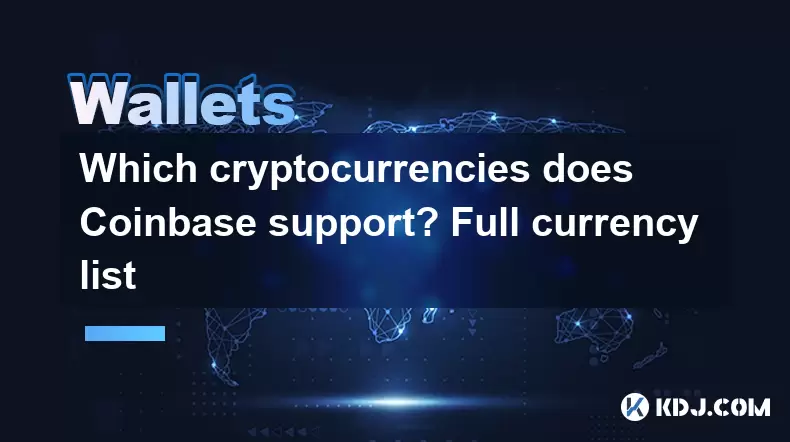
Which cryptocurrencies does Coinbase support? Full currency list
Jun 28,2025 at 08:36am
Overview of Cryptocurrencies Supported by CoinbaseCoinbase is one of the most popular and trusted cryptocurrency exchanges globally. It provides users with a platform to buy, sell, trade, and store various digital assets. As of the latest updates, Coinbase supports over 200 cryptocurrencies, including major ones like Bitcoin (BTC), Ethereum (ETH), and L...
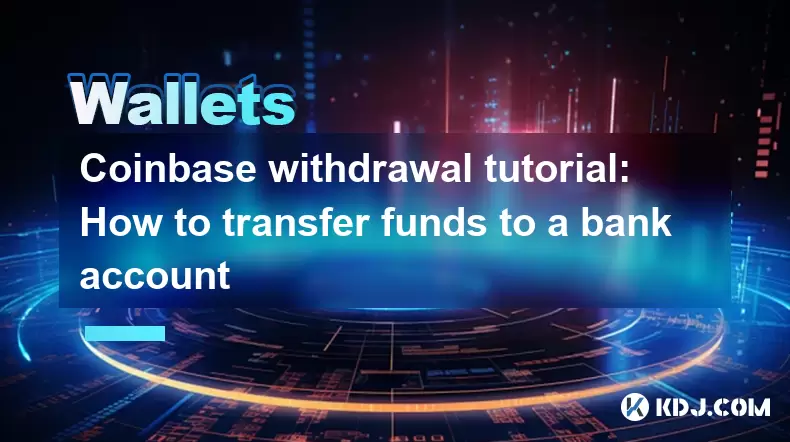
Coinbase withdrawal tutorial: How to transfer funds to a bank account
Jun 28,2025 at 02:35am
Understanding Coinbase WithdrawalsCoinbase is one of the most widely used cryptocurrency platforms, allowing users to buy, sell, and store digital assets. Once you've successfully traded or held your crypto on Coinbase, the next logical step may be to withdraw funds to a bank account. This process involves converting your cryptocurrency into fiat curren...
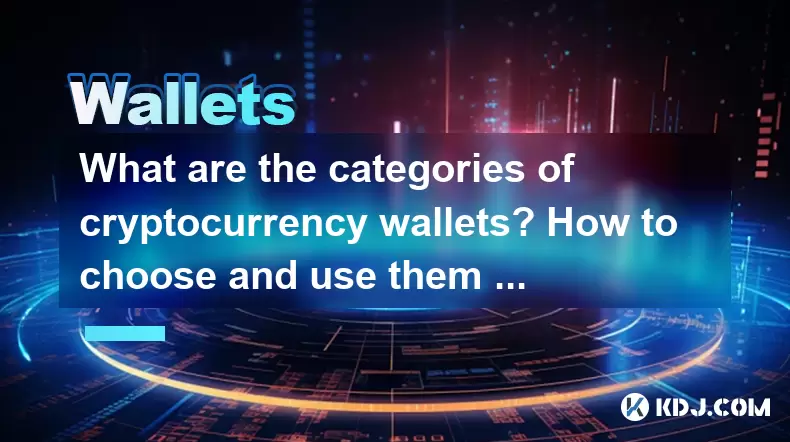
What are the categories of cryptocurrency wallets? How to choose and use them safely?
Jun 21,2025 at 10:42pm
Understanding Cryptocurrency WalletsCryptocurrency wallets are essential tools for anyone involved in the digital asset ecosystem. They allow users to store, send, and receive cryptocurrencies securely. Unlike traditional wallets that hold physical money, crypto wallets manage cryptographic keys—private and public—which interact with blockchain networks...
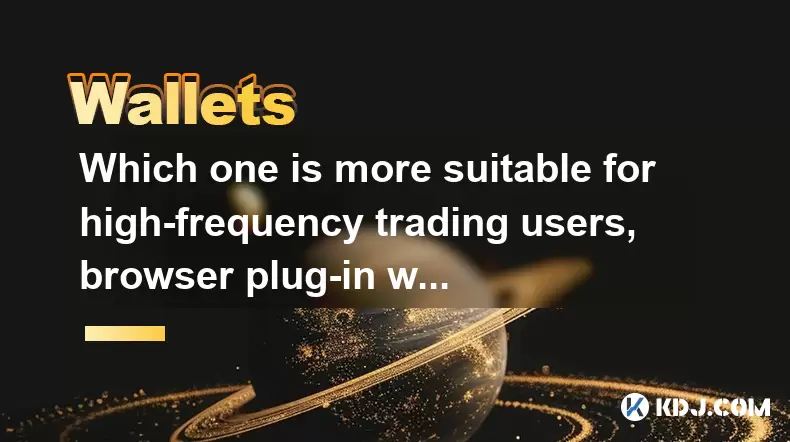
Which one is more suitable for high-frequency trading users, browser plug-in wallets or independent application wallets?
Jun 23,2025 at 08:22am
Understanding the Role of Wallets in High-Frequency TradingFor high-frequency trading (HFT) users in the cryptocurrency market, wallet selection is critical due to the need for speed, security, and seamless integration with trading platforms. HFT involves executing a large number of trades within seconds or even milliseconds, which demands a wallet that...

How to stake cryptocurrencies on Coinbase? Benefits and risks
Jun 27,2025 at 06:36pm
Understanding Cryptocurrency Staking on CoinbaseStaking cryptocurrencies involves locking up digital assets to support the operations of a blockchain network, typically in return for rewards. Coinbase, one of the most popular cryptocurrency exchanges globally, offers staking services for several proof-of-stake (PoS) coins. Users can stake their holdings...

How to contact Coinbase customer service? Support channels and response times
Jun 28,2025 at 01:29pm
Contacting Coinbase Customer Service: Support Channels and Response TimesIf you're a user of Coinbase, reaching their customer service team may become necessary for various reasons, such as account verification issues, transaction disputes, or technical difficulties. Understanding the different support channels available and what to expect in terms of r...

Which cryptocurrencies does Coinbase support? Full currency list
Jun 28,2025 at 08:36am
Overview of Cryptocurrencies Supported by CoinbaseCoinbase is one of the most popular and trusted cryptocurrency exchanges globally. It provides users with a platform to buy, sell, trade, and store various digital assets. As of the latest updates, Coinbase supports over 200 cryptocurrencies, including major ones like Bitcoin (BTC), Ethereum (ETH), and L...

Coinbase withdrawal tutorial: How to transfer funds to a bank account
Jun 28,2025 at 02:35am
Understanding Coinbase WithdrawalsCoinbase is one of the most widely used cryptocurrency platforms, allowing users to buy, sell, and store digital assets. Once you've successfully traded or held your crypto on Coinbase, the next logical step may be to withdraw funds to a bank account. This process involves converting your cryptocurrency into fiat curren...

What are the categories of cryptocurrency wallets? How to choose and use them safely?
Jun 21,2025 at 10:42pm
Understanding Cryptocurrency WalletsCryptocurrency wallets are essential tools for anyone involved in the digital asset ecosystem. They allow users to store, send, and receive cryptocurrencies securely. Unlike traditional wallets that hold physical money, crypto wallets manage cryptographic keys—private and public—which interact with blockchain networks...

Which one is more suitable for high-frequency trading users, browser plug-in wallets or independent application wallets?
Jun 23,2025 at 08:22am
Understanding the Role of Wallets in High-Frequency TradingFor high-frequency trading (HFT) users in the cryptocurrency market, wallet selection is critical due to the need for speed, security, and seamless integration with trading platforms. HFT involves executing a large number of trades within seconds or even milliseconds, which demands a wallet that...
See all articles
























































































